Building Healthy Relationships With 40 Helpful Worksheets

The quality of our relationships with others affects our personal and professional lives and our sense of belonging to a wider community and humanity (Halford, Pepping, & Petch, 2018; Murray, Ross, & Cannon, 2021; Yucel, 2018).
However, even the healthiest relationships will encounter problems, misunderstandings, and confusion from time to time. Healthy relationships are not pain free or perfect. To maintain healthy relationships, we need healthy interpersonal boundaries, good communication skills, and the capacity for compassion and forgiveness for the all too human mistakes we all make (Yucel, 2018).
This article provides relationship-focused worksheets, recommends helpful relationship books, and offers additional resources from our extensive library at PositivePsychology.com.
Before you continue, we thought you might like to download our three Positive Relationship Exercises for free. These detailed, science-based exercises will help you or your clients build healthy, life-enriching relationships.
This Article Contains:
Building Healthy Relationships Worksheets
Building healthy relationships with people takes time. Developing trust is essential and requires mutual openness and authenticity to flourish (Falconier et al., 2015).
We also need to be mindful of the appropriate boundaries for different types of relationships, such as work colleagues, parents, children, partners, friends, and acquaintances (Davis, Morris & Drake, 2017; Murray, Ross, & Cannon, 2021).
Knowing Your Partner
For most of us, the relationship we have with our significant other will be one of the most important and challenging relationships of our lifetimes (Yucel, 2018). All partnerships encounter problems especially in the longer term, when the initial excitement of romance wears off (Falconier et al., 2015).
Use the worksheets below to address common issues that arise between couples as the relationship develops. These worksheets can also be used as tools when counseling couples or downloaded as a self-help resource.
1. The High Quality Relationships (HQR) Worksheet
The HQR worksheet invites you to reflect on six areas common to all types of relationships, their quality, and therefore healthiness. These areas assess your capacity for:
- constructive emotional expression
- managing challenges
- accepting diversity
- interactive vitality
- positive regard
- mutuality.
Starting with this self-assessment worksheet reveals areas where relationship healthiness might be lacking.
2. Imago Workup
This Imago worksheet helps identify the qualities you want in a prospective romantic partner. It particularly draws on how childhood experiences and related attachment patterns affect the development of a romantic partnership as an adult.
3. About Your Partner
You can use the about your partner worksheet to check how much attention you pay to your partner and how well you know them as a person. It covers several life domains, including the things they most enjoy, what they want for the future, the things they most like about you, their relationships with other people, and their feelings about work and money.
4. Good Qualities
This good qualities worksheet helps couples reflect on what they appreciate about each other. It’s common for couples to forget why they were first attracted to each other as the relationship matures.
5. Valuing My Partner
Similarly, this valuing my partner worksheet helps couples who tend to focus on each other’s negative qualities to remember when they first met and what they value about each other now.
6. Three Things We Have In Common
This worksheet helps partners appreciate the commonalities and differences between them that make their relationship work. It should be completed by partners together and the answers discussed, raising awareness of each other’s complementary qualities.
7. Relationship Qualities
Couples tend to forget each other’s strengths when their relationship is tainted by conflict. This worksheet logs a list of activities to re-visit as a couple that have inspired positive feelings in the past.
8. Understanding The Big Picture
The big picture worksheet helps couples concentrate on their shared vision of the future to get through the more mundane and difficult times that every long-term relationship encounters. It uses miracle questions to build trust and connection with your partner and rekindle shared dreams.
9. Mutual Relationship Vision
Building on the big picture, this relationship vision worksheet encourages partners to note down all those things they most want from their relationship to make it ideal. Often couples lose sight of what excites and inspires their partner and as we grow, these things can also change.
10. Ranking Priorities in a Relationship
As our relationships mature, we can start taking our partner for granted and spend our spare time doing things that add no value to our relationship. This ranking exercise helps couples focus on expressing their values as a couple in a range of life domains, and prioritize the shared experiences that bring them the greatest fulfillment.
11. Interviewing Your Partner
Early in a relationship, we want to uncover as much as possible about our partner. However, that interest can dwindle as they become more familiar. This worksheet encourages couples to express curiosity about each other and rekindle interest in their partner.
12. Caring Behaviors List
This list of caring behaviors encourages couples to reflect on how their partner makes them feel loved and cared for. It is important to keep relationships alive by sharing experiences that have a special meaning for each other.
13. Create a Connection Ritual
Creating a positive connection ritual helps couples make time for each other and can prevent them from drifting apart. This worksheet guides couples on how to create a regular connection that meets both partners’ needs for intimacy.
14. What Makes a Perfect Day
Knowing that our partner wants to make us happy has positive consequences in a relationship. This perfect day worksheet encourages each partner to reflect on how they can turn a partner’s bad day into a good one. Each partner can learn how to make slight changes that profoundly affect each other’s lives.
Healthy Relationships Activities for Adults

Good communication and understanding how to manage conflict are essential relationship maintenance skills (Halford, Pepping, & Petch, 2018).
Improve communication
15. Effective Communication Reflection Worksheet
Effective communication requires a few simple skills that can be easily overlooked. This effective communication worksheet lists the basic verbal and non-verbal communication skills that we can use to build trust and understanding in any situation.
16. How to Improve Communication in Relationships: 7 Essential Skills
This how to improve communication worksheet outlines a set of seven essential communication skills that enable us to listen actively and respond constructively, without judgment.
17. Active Listening Reflection Worksheet
Active listening involves a combination of verbal and non-verbal communication skills that improve our ability to absorb, understand, and respond to what is being said.
This active listening worksheet outlines each skill and encourages you to reflect on how it can improve communication.
18. Capitalizing Positive Emotions With Active Constructive Responding
This worksheet is designed for a minimum of two people in a relationship but could be used with more. It focuses on how we communicate when things go right for others and ourselves.
Sometimes, an individual’s success can evoke jealousy, resentment, or envy in others. Active constructive responding counters negative responses by enhancing our appreciation of other people’s positive qualities and successes.
19. Knowing When to Speak Up
Sometimes it’s difficult to know when to speak up and stand your ground about something.
This knowing when to speak up worksheet offers guidance about when it is appropriate to speak up in a range of relationship situations, including the workplace.
Naikan Therapy
A Buddhist monk called Ishin Yoshimoto developed Naikan Therapy in 1940s’ Japan (Krech, 2001). It involves a rigorous process of introspection based on three core questions: what have I received, what have I given, and what problems and difficulties have I caused? It’s used in marital therapy to encourage partners to see themselves through the eyes of their partner and others in general.
20. Self-Reflection on Intimate Relationships
This reflection worksheet encourages each partner to reflect on their partner’s needs and how their behavior has affected their significant other. Partnerships can deteriorate when one or both partners put their own needs first.
21. Daily and Weekly Naikan Reflection Review and Goals
This Naikan reflection worksheet guides you through a daily reflection using the three Naikan questions to encourage greater self-awareness.
22. Self-Reflection Behavior Review
This self-reflection worksheet comprises a series of tabulated questions for clients in therapy or counseling about their behavior during a periodic review. The three Naikan questions are used to encourage a client’s reflection on the effects of their behavior, and what they need to be mindful of in the future.
Managing conflict positively
Some conflict is inevitable in any relationship given our all-too-human capacity for misunderstanding others and the fact that we’ll never agree with another person about everything. Conflict resolution is a valuable skill that transforms friction into creative tension, a driver of positive change (Shipley et al., 2018).
23. Conflict Resolution Checklist
This conflict resolution checklist invites the parties in a conflict to consider the sources of their differences using a checklist, and what needs to change to resolve their conflict.
24. What Are Your Unique Triggers?
This ‘triggers’ worksheet improves self-awareness of the events that trigger our stress reactions, which are essential for managing conflict.
25. Remaining Calm During Conflict
When dealing with difficult situations, it is essential to remain calm as losing our patience only escalates conflict. This remaining calm worksheet provides tips for conflict resolution in the workplace which is crucial for retaining the respect of those we work with.
26. Anger Exit and Re-Entry Routines: The Pause that Refreshes
This anger management worksheet asks you to consider what signals indicate the need for a pause to cool off and prevent the escalation of conflict with another. A pause can enhance clarity and more effective communication.
27. The EQ 5 Point Tool
EQ refers to our emotional intelligence quotient. This EQ worksheet explains how to use the EQ 5 point tool to defuse and resolve conflict.
Healthy vs Unhealthy Relationships Worksheets
In this section, we focus on the relationship challenges that can lead to distance and distrust that can even escalate into emotional abuse.
Authenticity
These three worksheets focus on authenticity and assess how a lack of honesty with yourself and others impacts your relationships.
Nobody enjoys being deceived or manipulated, so discovering that others that we love and respect have been less than straightforward can undermine and even destroy relationships (Olaf et al., 2021).
28. Relationship Audit
The relationship audit invites your client to assess their degree of authenticity with others.
29. Relationship Authenticity Checklist
This checklist comprises a checklist of indicators of your level of authenticity with yourself and others in relationships, and what needs to change if authenticity is lacking.
30. Finding Discrepancies
This finding discrepancies worksheet invites you to consider any discrepancies revealed by the assessments of authenticity above and the impacts they will have on different areas of your life if they continue or stop.
Codependency
Codependent relationships are characterized by a need to control others; an overwhelming sense of responsibility for the other’s moods, feelings, or problems; a lack of authentic communication; and poor interpersonal boundaries (Bacon et al., 2020).
Codependency can affect intimate partnerships, friendships, and other types of family relationships. The following three worksheets are designed to assess levels of codependency and transform codependency patterns.
31. Codependency Questionnaire
This codependency questionnaire assesses the codependent tendencies of the respondent.
32. Codependent Relationships: Beliefs, Attributes, and Outcomes
This worksheet assesses the level of codependency in a relationship which is typically characterized by an excessive dependence on another’s approval for one’s sense of identity and self-worth.
33. Shifting Codependency Patterns
This worthwhile worksheet describes typical codependent behaviors and asks those with codependent relationships how they can adopt behaviors that support mature, healthy relationships.
Skills for healthy romantic relationships – Joanne Davila
Group Therapy Activities
The following group therapy exercises support the development of healthy relationships in all kinds of groups.
34. Practice Verbal Communication Skills
Although this communications worksheet is aimed at therapists and counselors in training, it can also be used as a team-building exercise that supports the development of group communication skills.
35. Things I Love
This checklist provides a way of checking the things you love in a range of life domains. It is a group exercise, and every group member needs a chance to contribute to deepen the positive connections in the group.
36. What I See in You
This group exercise boosts each member’s self-esteem by asking others about their positive qualities. Often, people are surprised to hear how much they are appreciated and valued by others.
37. Create a Care Package Worksheet
This care package exercise reveals what is most important to each participant. You are asked to name ten things you would take to start a new life in an unknown location and what they mean to you. Sharing the exercise in a group helps to build deeper understanding between group members.
38. Silent Connections
This silent connections worksheet outlines an exercise based on mindfulness of other people and using non-verbal communication to build social connections. Mindfulness improves our sensitivity to others and supports constructive social engagement in a range of contexts.
39. Blindfold Guiding Exercise
This blindfolded guide exercise is used to build trust in groups. A blindfolded member experiences the vulnerability required to extend trust while being guided by another.
40. Human Typewriter
The human typewriter outlines a fun team-building exercise that helps build social cohesion and cooperation in groups.
Helpful Relationships Books
The following five books are useful resources for those seeking to improve their intimate partnerships and resolve and heal betrayal in different types of relationships.
1. Betrayal Bond, Revised: Breaking Free of Exploitive Relationships – Patrick Carnes (2019)
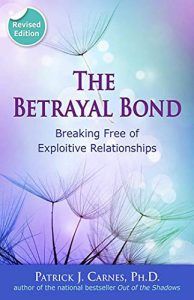
These include intimate partnerships, with family members, friends, and work colleagues.
Find it on Amazon.
2. The 5 Love Languages: The Secret to Love that Lasts – Gary Chapman (2011)
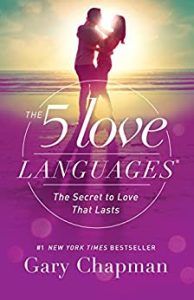
The book helps readers identify the types of verbal and nonverbal communication that enhance and deepen emotional intimacy.
Find it on Amazon.
3. Hold Me Tight: Seven Conversations for a Lifetime of Love – Sue Johnson (2008)
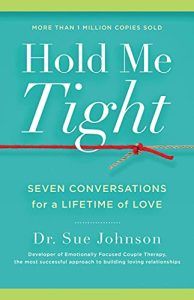
It is based on relationship case studies and includes a range of exercises.
Find it on Amazon.
4. Getting the Love You Want: A Guide for Couples (3rd Edition) – Harville Hendrix and Helen LaKelly Hunt (2019)
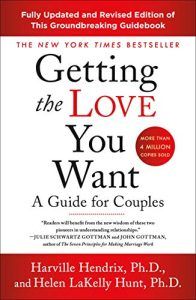
It includes several useful exercises to help improve communication and enhance mutual support.
Find it on Amazon.
5. The Seven Principles for Making Marriage Work – John Gottman and Nan Silver (1999)
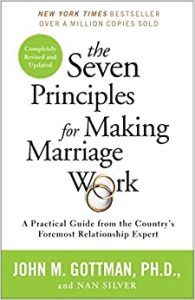
The authors include a range of exercises and questionnaires.
Find it on Amazon.
PositivePsychology.com Resources
In addition to the resources offered above, you may be interested in our Positive Relationships Masterclass, a 6-module science-based relationships training for helping professionals.
Scientific research over the past few decades has shown that social relationships are one of the key contributors to personal happiness and wellbeing.
People with a strong support network are much more resilient. Our Masterclass introduces you to the vital elements of healthy relationships that promote human flourishing and provides a range of practical tools to help you and your clients develop and sustain meaningful social connections.
In addition, you might find the following articles useful:
- 11+ Honesty Worksheets & Tests for Adults
- What Is Marriage Psychology? +6 Tips for Therapists
- The Importance of Forgiveness in Marriage and Relationships
- Attachment Styles in Relationships: 6 Worksheets for Adults
A Take-Home Message
We hope you found this article and related resources helpful. Human beings are social animals and we need healthy relationships as much as the air we breathe. However, the skills required to start and sustain healthy relationships are not taught in any formal sense, but modeled to most of us by family members, other adults, and peers during childhood.
This is fine if we come from a functional family and community that modeled healthy relationships. Yet each of us is subject to too many influences as we grow and develop to emerge into adulthood unscathed by poor communication and faulty patterns of relating.
The good news is that we can remedy the situation and build healthy relationships nevertheless by improving our communication skills, and learning how to be more authentic, compassionate, and forgiving with others, as well as ourselves.
We hope you enjoyed reading this article. Don’t forget to download our three Positive Relationships Exercises for free.
- Bacon, I., McKay, E., Reynolds, F. & McIntyre, A. (2020). The lived experience of codependency: An interpretative phenomenological analysis. International Journal of Mental Health and Addiction 18, 754–771.
- Davis, T. J., Morris, M., & Drake, M. M. (2016). The moderation effect of mindfulness on the relationship between adult attachment and wellbeing. Personality and Individual Differences, 96, 115–121.
- Falconier, M. K., Nussbeck, F., Bodenmann, G., Schneider, H., & Bradbury, T. (2015). Stress from daily hassles in couples: Its effects on intradyadic stress, relationship satisfaction, and physical and psychological well-being. Journal of Marital and Family Therapy, 41(2), 221–235.
- Halford, W. K., Pepping, C. A., & Petch, J. (2018). Promoting healthy relationships. In A. L. Vangelisti & D. Perlman (Eds.), The Cambridge handbook of personal relationships (2nd ed., pp. 579–590). Cambridge University Press.
- Krech, G. (2001). Naikan: gratitude, grace and the Japanese art of self-reflection. Stone Bridge Press.
- Murray, C. E., Ross, R., & Cannon, J. (2021). The Happy, Healthy, Safe Relationships Continuum: Conceptualizing a spectrum of relationship quality to guide community-based healthy relationship promotion programming. The Family Journal, 29(1), 50–59.
- Olaf, D., Friederichs, K. M., Lebedinski, S, & Liesenfeld, K. M. (2021) The essence of authenticity. Frontiers in Psychology, 11.
- Shipley, M., Holden, C., McNeill, E. B., Fehr, S., & Wilson, K. (2018). Piecing together behaviors of healthy relationships. Health Educator, 50(1), 24–29.
- Yucel, D. (2018). The dyadic nature of relationships: Relationship satisfaction among married and cohabiting couples. Applied Research in Quality of Life, 13, 37–58.
Let us know your thoughts
Read other articles by their category
- Body & Brain (42)
- Coaching & Application (54)
- Compassion (26)
- Counseling (50)
- Emotional Intelligence (24)
- Gratitude (18)
- Grief & Bereavement (21)
- Happiness & SWB (39)
- Meaning & Values (25)
- Meditation (20)
- Mindfulness (44)
- Motivation & Goals (43)
- Optimism & Mindset (32)
- Positive CBT (25)
- Positive Communication (20)
- Positive Education (44)
- Positive Emotions (30)
- Positive Leadership (13)
- Positive Psychology (32)
- Positive Workplace (33)
- Productivity (16)
- Relationships (41)
- Resilience & Coping (34)
- Self Awareness (20)
- Self Esteem (36)
- Software & Apps (13)
- Strengths & Virtues (30)
- Stress & Burnout Prevention (33)
- Theory & Books (44)
- Therapy Exercises (35)
- Types of Therapy (58)





What our readers think
Thanks so much for this!